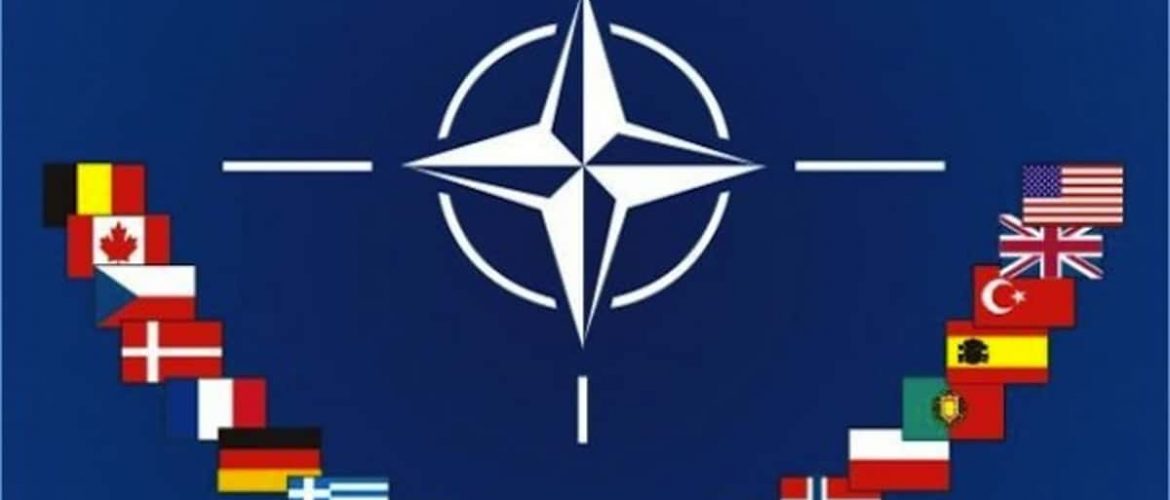Blog
NATO AND INDIA
- April 28, 2021
- Posted by: Sushil Pandey
- Category: Current Affairs Daily Blogs Daily News Analysis Free Resources Present Day in News

NATO AND INDIA ( INTRENATIOINAL RELATION)
Why in News?
India’s continued reluctanceto engage a major European institution like NATO will be a stunning case of strategic self-denial.
- [NATO: Inter-governmental, post-War military alliance between 30 European and North American countries]
Why yet not a part?
During the Cold War (1989-91), India refused to become a part of NATO because of its non-alignment, but it built partnerships with neutral and non-aligned states like Russia and China.
| NATO is not offering membership to India but issue is the question of exploring potential common ground. To play any role in the Indo-Pacific, Europe and NATO need partners like India, Australia and Japan. India knows that no single power can produce stability and security in the Indo-Pacific. India’s enthusiasm for the Quad is recognition of the need to build coalitions. |
India has always been a non-aligned country; slowly progressing towards multi-alignment as the world becomes multi-polar. In this, India offers support to one country over another for specific issues (tender issue based support), to make the country desirable. On a bilateral front, each of the members have much to offer in strengthening India’s national capabilities, if India joins the alliance.
Reasons behind neglect
Regular consultations with NATO are inacceptable in Delhi. Avoiding engagement with NATO could be due to Delhi’s eagerness to discuss Indo-Pacific with unwilling Russia.
In the Past
- British Rule in India firstly involved prevailing over the rival European powers (Portuguese, Dutch & French), then eyeing on their plans to lessen British dominance in the India. In this game with France, Germany and Russia at different stages — suspicion of Europe was written in to the Indian establishment’s DNA.
- After Independence, Delhi came to rely on the Soviet Union for its security in the Cold War, amidst India’s widening political divide with the West.
- As the East India Company expanded its reach, many princes sought cooperation from Europeans in their battles to preserve their sovereignty viz a viz the British.
- As nationalist forces gained ground at the dawn of the 20th century, the newly established European powers became an attractive partner for Indian revolutionaries to the overthrow of the British Raj. Wilhelmine Germany helped set up the first provisional government of India in Kabul headed by Raja Mahendra Pratap Singh and Maulana Barkatullah in 1915.
- In the Second World War, Subhash Bose looked for German support to oust Britain from India.
- As the Cold War enveloped the world, nuancing Europe became harder in Delhi. Europe’s many internal contradictions did not disappear in the Cold War; but Delhi’s rigid ideological framing of the world in East-West and North-South axes left little room for a creative engagement with Europe.
- India being non-aligned during the cold war, even though it was friendly to the USSR it didn’t join the Warsaw pact or become a Soviet puppet state. The objective was to prevent the world from getting divided military blocs and to give the newly independent countries of Asia and Africa a chance to avoid getting dragged into expensive and senseless conflicts.
- The fall of the Berlin Wall and the collapse of the Soviet Union demanded a fresh approach to Europe. But Delhi could not devote the kind of strategic attention that Europe demanded. The bureaucratization of the engagement between Delhi and Brussels and the lack of high-level political interest prevented India from taking full advantage of a re-emerging Europe.
Prime Minister Narendra Modi has certainly sought to end this prolonged political neglect.
NATO is riven with divisions on how to share the military burden and strike the right balance between NATO and the EU‘s quest for an independent military role. NATO members disagree on Russia, the Middle East and China. Meanwhile, conflicts among NATO members have sharpened.
India and Russia know they have to insulate their bilateral relationship from the larger structural trends buffeting the world today. Meanwhile, both Russia and China have intensive bilateral engagement with Europe. Even as hostilities between Moscow and Brussels have intensified, multiple European voices call for a dialogue with Russia. After all, Europe can’t wash away Russia from its geography. Meanwhile, China has long understood Europe’s salience and invested massively in cultivating it.
Why no denial to NATO?
In the last few years, Delhi worked on to develop an independent European framework; talking to NATO indicates an important part of India’s European strategy
Advantages of dialogue between India and NATO
- An India-NATO dialogue will build a regular contact with a military alliance; most members of NATO are well established partners of India
- -Delhi appears to be poised for a vigorous new push into Europe this year. A pragmatic engagement with NATO must be an important part of India’s new Europe an orientation amidst the continent’s search for a new role in the Indo-Pacific.
- Productive exchanges: in terrorism, changing geopolitics; the evolving nature of military conflict, the role of emerging military technologies, and new military doctrines
- An institutionalized engagement with NATO should make it easier for India to deal with the military establishments of its 30 member states.
EU: The European Union (EU) is a political and economic union of 27 member states that are located primarily in Europe.
Quad: The Quadrilateral Security Dialogue (QSD, also known as the Quad) is an informal strategic dialogue between the United States, Japan, Australia and India that is maintained by talks between member countries. The dialogue was initiated in 2007 by Prime Minister Shinzo Abe of Japan, with the support of Vice President Dick Cheney of the US, Prime Minister John Howard of Australia and Prime Minister Manmohan Singh of India.
image source: Siasat daily
